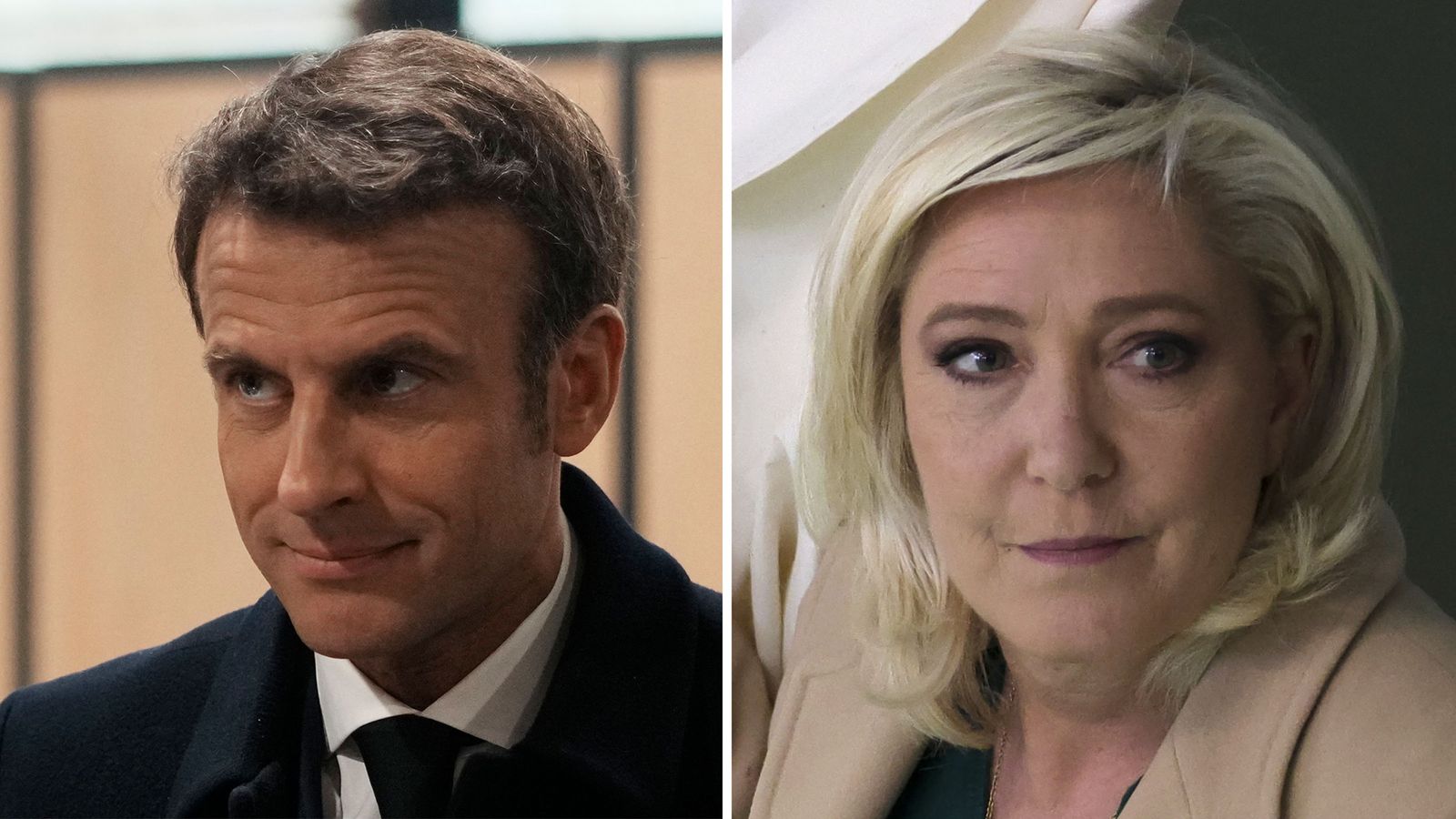French President Emmanuel Macron will face far-right candidate Marine Le Pen in the presidential elections after making it through the first round.
According to the official Ipsos exit poll, the president secured 28.1% of the vote and his rival won 23.3%, with official results expected later in the evening.
French voters will go to the polls again on 24 April to decide whether Mr Macron stays in the Elysee for a second five-year term.
Read more:
Everything you need to know about the French election
Please use Chrome browser for a more accessible video player
Speaking to her supporters in Paris, Marine Le Pen said that if elected she “will be president of all French citizens”, and called on them to “join her”.
Far left candidate Jean Luc Melanchon, who looks set to miss out on the run off, has Ipsos predicting his vote share at 20.1% – in third place.
He told his supporters in Paris that voters are now faced with their own conscience, and the “fight goes on” in what he calls his “political struggle”, adding repeatedly that citizens should not vote for Marine Le Pen.
France presidential election: Emmanuel Macron faces far-right challenge from Marine Le Pen as voting takes place across country
Emmanuel Macron calls Polish PM Mateusz Morawiecki ‘far-right antisemite’ after criticism of his Putin calls
When are the French presidential elections, who is running, and how do they work?
The rest of the knocked out candidates are now scrambling to endorse the two remaining challengers, with all of them, except the far-right Eric Zemmour, refusing to support Ms Le Pen.
The gap between Macron and Le Pen narrowed in the last few weeks
Just weeks ago the centrist incumbent Mr Macron appeared sure to win for a second time.
But after a late start to his campaign due to the war in Ukraine and Ms Le Pen’s efforts to focus on the cost of living crisis at home, the gap in their ratings closed, with the National Rally candidate within the margin of error to achieve a victory for the first time.
The vote on 24 April will be a rerun of the election five years ago, when Mr Macron, 44, secured 66% of the vote and Ms Le Pen just 33%.
Ms Le Pen, 53, who is making her third attempt at the presidency, has benefited from a drop in popularity for her main far-right rival, former journalist Eric Zemmour.
She has also tried to tone down her anti-immigration policies, choosing instead to focus on rising inflation, in an attempt to appear more moderate.
She banned her father, Jean-Marie Le Pen, from her party in 2015, and rebranded what was the National Front into National Rally in 2018 to further sanitise her image. She denies Mr Macron’s allegations of racism.






















